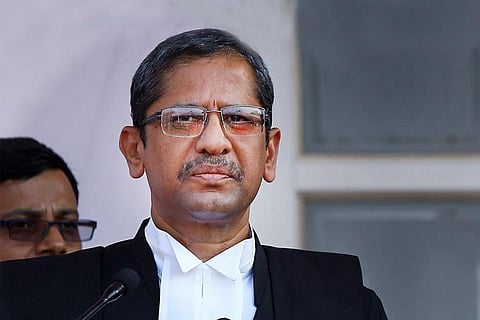

The Chief Justice of India (CJI) NV Ramana on Monday said that if both Andhra Pradesh and Telangana are willing, he will supervise a mediation process for both states to share Krishna river water. Both states had been at loggerheads over water sharing and irrigation projects being undertaken on the river. The CJI suggested both states resolve the water dispute through mediation and not waste time over litigation.
The SC bench comprising the CJI and Justice Surya Kanth was hearing a writ petition filed by Andhra Pradesh accusing Telangana of depriving its people of their legitimate share of the Krishna river water for drinking and irrigation purposes. The state had sought directions from the Supreme Court to prevent Telangana from drawing more water from the river.
CJI Ramana urged both states to resolve the issue amicably among themselves and not involve any third party to mediate. Speaking to Dushyant Dave, the Counsel representing Andhra Pradesh, the CJI said, "If you want adjudication of legal issues raised by Andhra Pradesh in its writ petition, I will recuse and post the petition before another bench.” He added that he belonged to both the states and that he can arrange for mediation and supervise the process for a possible resolution of the Krishna water sharing dispute, reported Times of India.
Dave welcomed the CJI’s suggestions and said they are worth considering. He informed the court that a decision will be taken based on instructions from Chief Minister YS Jagan Mohan Reddy Office. Senior advocate CA Vaidyanthan representing Telangana told the court that as such there is enough water for both the states to share but the issue arises only when there is water scarcity.
The issue between the two states arose when the Telangana government decided to draw more water from the Krishna river for Hydro-Power generation. The Andhra Pradesh government alleges the Telangana government decision to be a violation of directions of the Krishna River Management Board (KRMB) set up as per the Andhra Pradesh Reorganisation Act 2014.